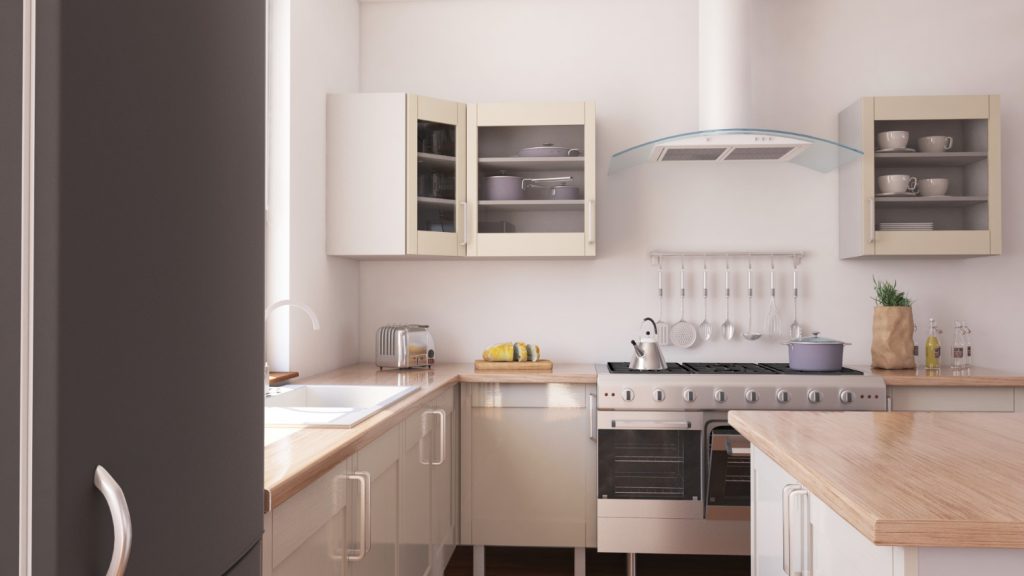
Ten Factors To Consider When Hiring A Kitchen Designer
When it comes to designing or remodelling a new kitchen, hiring a professional kitchen designer is an essential step towards creating your DREAM culinary space.
A skilled kitchen designer possesses the expertise and knowledge to transform your ideas into functional and aesthetically pleasing kitchen interiors.
At Interiors By Design, we have extensive experience in designing and manufacturing kitchens all over the UK.
With this in mind, we have put together a useful guide, highlighting ten crucial factors for you to consider when selecting a kitchen designer.
This “ultimate guide” will help ensure you make the correct decision when hiring a kitchen designer.
Experience and Expertise
One of the primary factors to consider when selecting a kitchen designer, is their experience and expertise in the field. Look for professionals who have a proven track record of delivering successful kitchen designs.
An experienced kitchen designer will have a deep understanding of the latest trends, materials and techniques, enabling them to create innovative and practical kitchen interiors.
Portfolio and Design Style
Reviewing a kitchen designer’s portfolio is an excellent way to gauge their design style and creativity.
Pay attention to the diversity and quality of their previous projects!
A talented kitchen designer should be able to adapt to your vision and preferences – whether it is contemporary, traditional or a fusion of styles.
Client Testimonials and References
Client testimonials and references provide valuable insights into a kitchen designer’s professionalism and the satisfaction of their previous clients.
Don’t be afraid to reach out to past clients to learn about their experiences and ask specific questions about the designer’s communication, problem-solving skills and attention to detail.
Positive reviews and recommendations can help you make an informed decision.
Communication and Collaboration
Effective communication and collaboration are essential for a successful partnership with a kitchen designer.
During the initial consultations, assess the designer’s ability to understand and interpret your ideas. Clear communication ensures that your specific requirements and desired kitchen design ideas are accurately translated into the final product.
A good kitchen designer actively listens, asks relevant questions and provides valuable suggestions.
Budgeting and Cost Transparency
When planning a kitchen design, it is crucial to establish a budget and find a kitchen designer who can work within it.
Discuss your budgetary constraints openly and inquire about the designer’s pricing structure, to make sure they are a “right fit” for you.
This will ensure that there are no surprises along the way.
A reliable kitchen designer will propose cost-effective solutions without compromising on quality.
Knowledge of Building Regulations
A reputable kitchen designer should be well-versed in local building regulations and planning permissions.
Compliance with these regulations is vital to ensure the safety and functionality of your kitchen design.
Ask potential designers about their knowledge of relevant codes and their experience in obtaining necessary permits.
A designer who understands these requirements will save you time and potential issues.
Project Management and Timelines
Efficient project management makes for a smooth and timely completion of your kitchen.
Find out about the designer’s project management skills, including their ability to coordinate with contractors, suppliers, Trade and other professionals involved in the process.
A kitchen designer who can establish realistic timelines and manage the workflow effectively, will ensure that your project stays on track.
Material Selection and Quality
The choice of materials significantly impacts the longevity and aesthetics of your kitchen design.
A competent kitchen designer will have extensive knowledge of various materials, finishes and appliances available in the market.
They should guide you towards selecting high-quality durable materials that suit your preferences and lifestyle.
Ensure that the designer has access to a wide range of suppliers to provide you with ample choices.
Attention to Ergonomics and Functionality
A well-designed kitchen should NOT ONLY be visually appealing but also functional and ergonomic.
A skilled kitchen designer understands the importance of optimising space for efficient workflow. One of the things we pride ourselves on at Interiors By Design, is utilising each and every bit of real estate in your kitchen, so there is no wasted space.
Discuss your specific needs, lifestyle and even cooking styles with potential designers to evaluate their ability to create a kitchen that enhances both comfort and productivity.
After-Sales Service and Warranty
Last but not least, consider the after-sales service and warranty offered by the kitchen designer.
A reliable professional should stand by their work and offer assistance, should any issues arise after project completion.
Ask about their warranty policies and what level of support they provide, post installation.
A designer who prioritises customer satisfaction will ensure a positive experience, long after the project is finished.
Conclusion
Selecting a kitchen designer is a crucial step in planning a kitchen design that reflects your style and meets your functional needs.
By considering factors such as experience, design style, communication, budgeting and project management, you can make an informed decision.
Remember to prioritise quality, functionality and collaboration throughout the process.
Request consultations with multiple designers, review their portfolios and ask thorough questions. Additionally seek recommendations from family, friends or colleagues who have recently undergone kitchen renovations.
Check out Our Work to get inspired by some of our kitchen projects from our Client Diaries.

